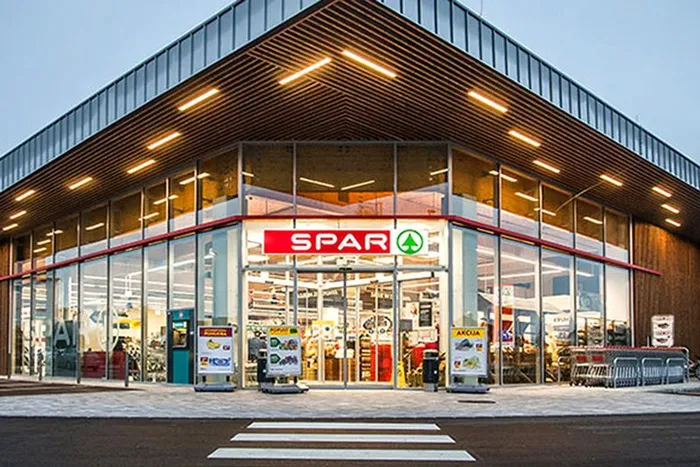
The SPAR Group, after its 52-week financial trading period to September 30, 2025, said they were committed to resuming returns to shareholders over the short to medium term, either in the form of dividends and/or share buybacks.
Image: IOL
The SPAR Group share price continued a downward trend on Friday after it warned that headline earnings per share from continuing operations were expected to be lower by 7.5% to 12.5% for the 52 weeks to September 26.
The share price was trading 4.35% lower at R103.50 on Friday afternoon, following a trend of over 24% lower from R137.69 a year previously.
The retail franchiser group stated in a trading statement that once-off impairments processed during the year were largely behind the fact that earnings per share from continuing operations were likely to be between 40% and 50% lower.
The lower headline earnings per share would be primarily due to the SPAR Poland exit financing costs and related tax.
However, the directors indicated that the group was committed to resuming returns to shareholders over the short to medium term, either in the form of dividends and/or share buybacks.
“The group's financial position has improved significantly over the past 12 months, and a stronger balance sheet, improved cash generation profile, and continued disciplined capital allocation will support this next phase of transformation and growth,” they said in a trading statement.
On a constant currency basis, group revenue growth improved. Group gross profit margin improved year-on-year, with Southern Africa operating profit growth in the second half showing an improvement over the first half.
Net finance costs were about 20% higher, mainly due to SPAR Poland-related debt that was assumed in South Africa. This also increased the group tax rate .
Group net debt reduced by 40%, to R5.4 billion from R9.1bn, due to strong cash generation and the sale of SPAR Switzerland. Net debt in South Africa reduced to R3.2bn from R3.4bn.
Carrying values of assets on the group balance sheet were reassessed, which resulted in the impairment of Southern Africa corporate store assets and associated goodwill.
This, with a reduction in the carrying value of the Appleby Westward Group (AWG) in the UK and the impairment of SPAR Switzerland in the first half, resulted in the assets and equity reducing by R5.2bn.
However, the disposals of SPAR Poland and SPAR Switzerland had enhanced the group's financial strength, provided flexibility, and enhanced management's focus on supporting its strategic priorities.
Group revenue from continuing operations saw better momentum during the second half, although full-year growth reflected a modest uplift due to a subdued first half.
Gross profit margin improved year-on-year and remained broadly in line with the first half despite the tough trading environment. Operating profit in constant currency increased year-on-year.
SPAR Southern Africa’s stronger second-half operating performance was largely driven by improving sales in the grocery and liquor businesses, supported by strong cost discipline.
In Ireland, second-half top-line growth was positive. Gross margins improved marginally; however, foreign currency translation at group level diluted these gains to some extent.
Impairments recognised were of SPAR Switzerland R3bn (discontinued operation), impairment of AWG (discontinued operation) R1.6bn, and an impairment of a Southern Africa corporate store of R0.6bn.
“These impairments reflect management's focus on balance sheet integrity and ensuring that asset carrying values accurately represent underlying economic reality,” the directors stated.
The group has identified and accelerated the roll-out of further initiatives to strengthen operations, drive efficiencies, and re-establish the long-term sustainability of SPAR's business model, in response to margin, cost, and competitive pressures, the directors said.
Investments in process optimisation, technology enablement, and supply chain resilience would help create a more agile and efficient business for both SPAR and its independent retailers.
“Looking ahead, management expects these initiatives to deliver margin expansion and improved returns over the medium term,” the directors said.
Visit:www.businessreport.co.za